#football culture
Text
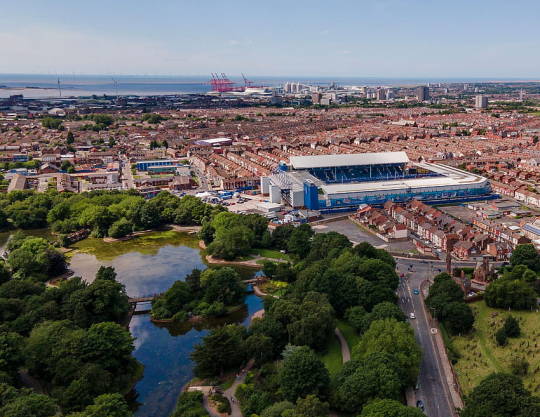
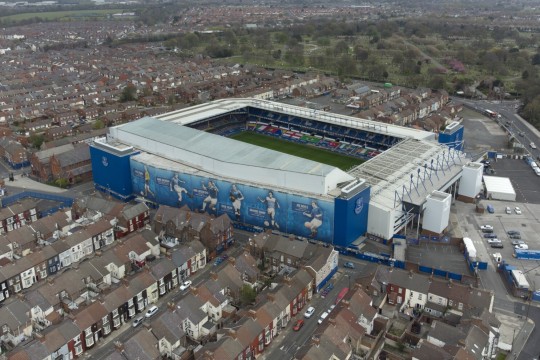


#Liverpool#Premierleague#Football#Football Culture#Everton#everton fc#Toffees#Wayne Rooney#Anfield#liverpool fc#Lfc#England#Goodison Park#Gwladys Street#Gwladys End
9 notes
·
View notes
Text
#luka modric#World Cup#documentary#perspective#leadership#honesty#respect#perseverance#football culture#advice#reality checks#mentors#good people#teammates#sportsmanship
8 notes
·
View notes
Text




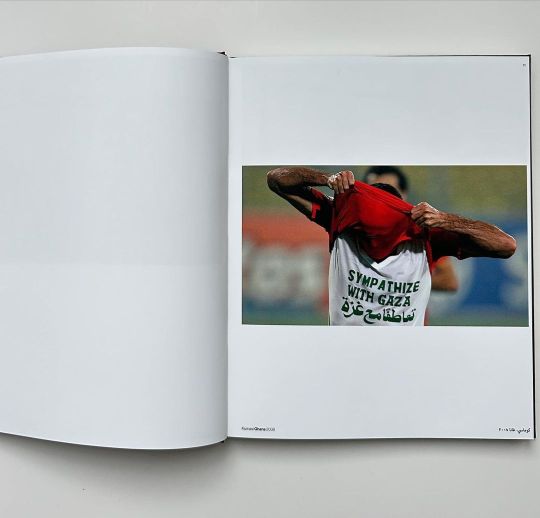
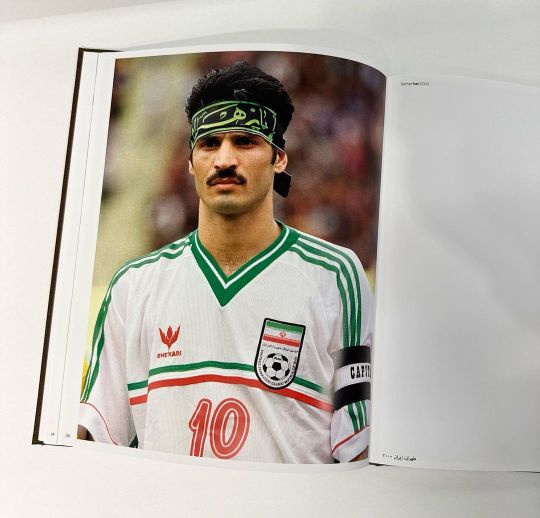


@.middleastarchive: "Football كرة القدم" delves into the representation of football in the Middle East and North Africa, extending beyond the limitations of sport to become an integral aspect of the region’s culture. The publication is motivated by a love of the game and a desire to showcase an underrepresented football culture in the MENA region.
The book includes photographs taken between late 1980s up to 2023, in Morocco, Algeria, Iraq, Tunisia, Syria, Lebanon, Turkey, Egypt, Oman, Yemen, UAE, Palestine, Saudi Arabia, Iran, Kurdistan, and other countries in the region, by a wide range of photographers including some of our favourites, Abbas, Nikos Economopoulos, Karim Sahib, Jinane Ennasri, Marco Di Lauro, Alex Webb, and Salah Malkawi.
Book designed by Akaar @.akaar
"Football" includes an Introduction written by founder & curator Romaisa Baddar and copy edited by Dalia Al-Dujaili @.dalia.aldu , translated by Mourad Nusair @.mourad_nusair
21 x 26 cm | “8x10”
Linen-bound hardback l
126 pages
Dual language English/Arabic
Self published
#middle east#north africa#football#palestine#mena region#football culture#idk how to tag this but i hope anyone who could be interested sees this!#i looooove the middle east archive#i follow their ig and they always post such great photos#when i saw this i was like oh my god for me!!!!!! as a lover of football (obviously) and appreciator of photography and person interested#in preserving palestinian culture as much as i possibly can with the means i have#and also just generally interested in football cultures different from my own from all over the world!!!!!#considering buying this as a treat to myself when i get my paycheck in around a week... it just looks so beautiful and i don't actually own#any photography book i think? i've always wanted one but they're just SO expensive you know i can never justify it#ANYWAY rambling but. even if you don't care about the book go look at the photos middle east archive post they're very beautiful#btw that third photo i love it so much 🥹🥹
2 notes
·
View notes
Text
How is Match and Performance Analysis Used in Football?

Match and performance analysis are integral parts of the modern game. To attain peak performance levels, the deployment of analysis must be precise and structured to guarantee its efficacy in influencing both the game and individual player performances.
What is Match Analysis and Performance Analysis?
Performance and Match Analysis are fundamental in the world of football, but what do these terms really mean, and what sets them apart?
Performance analysis identifies tactical trends to measure the performance of players. It assesses the decision-making of the players and analyses that information to recognise whether the team is executing the game plan. This analysis ultimately serves to improve and optimise performance. It's not limited to the field; it can also be used for player recruitment, among other applications.
Conversely, match analysis zeroes in on the assessment of quantitative data conveyed through performance metrics. These metrics serve as a tool for scrutinising behaviours and decision-making, unearthing insights that might not be readily discernible during a match. While its primary focus is on matches, it can be considered a type of performance analysis.
Examples of performance analysis include scrutinising key performance indicators of a player during training. This may involve using GPS data and heart rate monitors to assess and monitor the fitness levels of players rehabilitating from injuries. Meanwhile, match analysis has evolved in the modern game, introducing concepts like 'expected goals' to determine how many goal-scoring opportunities a team creates, even if they don't result in immediate goals.
Performance Analysis, as a specialist discipline, involves systematic observations to enhance performance and improve decision-making. This is primarily achieved through the provision of objective statistical data analysis and visual feedback through video analysis. The aim is to empower teams to make informed decisions and improve performance. You can explore further information on the Institute of Sport's website.
Similarities and Differences
So, what are the similarities and differences between Performance and Match Analysis?
Both Performance and Match Analysis aim to provide insights into player and team performance, but they differ in focus. Performance analysis is broader, encompassing various aspects of player and team performance, while match analysis narrows its focus to specific matches.
In summary, performance analysis is the umbrella term covering different forms of analysis in football and other sports. Key terms for Match Analysis and Performance Analysis include objective, recording, data, understanding behaviour, improving future outcomes, and modification of athlete behaviour. These terms help us navigate the complex world of football analysis.
Why Is Analysis Performed?
The fundamental question here is, why is analysis performed in football? Analysis, whether it's performance or match analysis, is essential to support the coaching process. Feedback and information processing are crucial aspects of coaching at all levels. However, human memory has limitations, and coaches can only recall a portion of match events accurately.
Academic research has shown that coaches may recall as little as 30% of match events accurately. This is where analysis steps in, providing coaches with a comprehensive and objective overview of the match. It also reduces the impact of time and memory limitations, ensuring that information is available when needed.
The Role of Objectivity
Objectivity is crucial in analysis. Objectivity through video and data ensures that the analysis is not influenced by personal biases or limitations. It helps coaches, scouts, and football professionals make informed decisions based on concrete data.
What Analysis Can Be Performed?
Finally, let's explore some examples of what analysis can be performed to aid coaches, players, recruitment departments, and more. From player performance metrics to tactical insights, analysis plays a pivotal role in improving football's understanding and performance.
Match and performance analysis are indispensable tools in the world of football. They provide a window into the intricate world of player and team performance, helping coaches and teams make more informed decisions and ultimately enhance their performance on the pitch.
Disclaimer: This is a personal blog. Any views or opinions represented in this blog are personal and belong solely to the blog owner and do not represent those of institutions or organisations that the owner may or may not be associated with in professional or personal capacity, unless explicitly stated. Any views or opinions are not intended to malign any religion, ethnic group, club, organisation, company, or individual. All content provided on this blog is for informational purposes only. The owner of this blog makes no representations as to the accuracy or completeness of any information on this site or found by following any link on the world-wide-web. The owner will not be liable for any errors or omissions in this information nor the availability of this information. The owner is using this blog to map their educational journey with the University Campus of Football Business (UCFB) and the Global Institute of Sport (GIS). The owner will not be liable for any losses, injuries, or damages from the display or use of this information.
#uefa#fifa#football#soccer#football match#football coach#football scout#football culture#performance analysis#match analysis#football player#talentid#talentidentification#cpd
2 notes
·
View notes
Text
youtube
It has been a long year with tons of footy. I spent the first part of the year chasing balls in Thailand while making new friends. Then I was in southern Ontario for the summer playing with old friends. And now I’ve spent the final third of the year kicking it in Italy with the Rome City Institute and Link Campus University.
These clips are from my time in Rome. Plenty more footy to be played, but for now I just wanted to let you all know that I’m still alive and kicking, and I hope you all are too! Here’s to a great 2023 for all of us!
8 notes
·
View notes
Text
My mom just compared people tailgating outside a football stadium to people davening at the Kotel to be close to the Kedusha of Har HaBayit and I'm......she's got a point though lmaooooo
14 notes
·
View notes
Photo
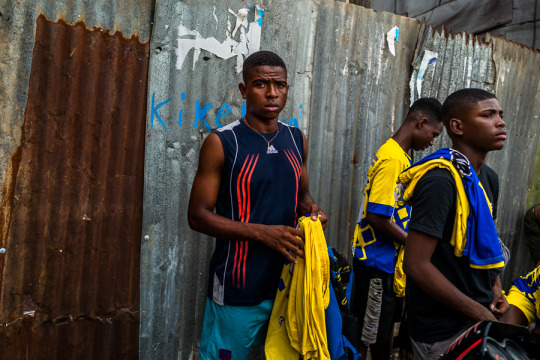
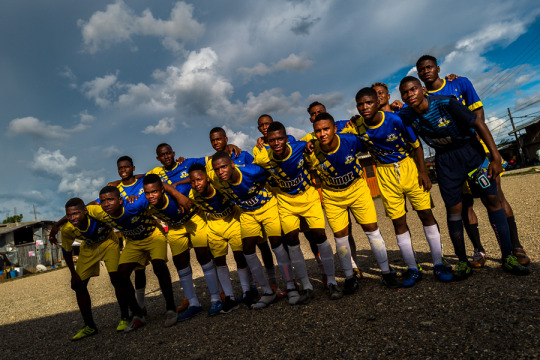
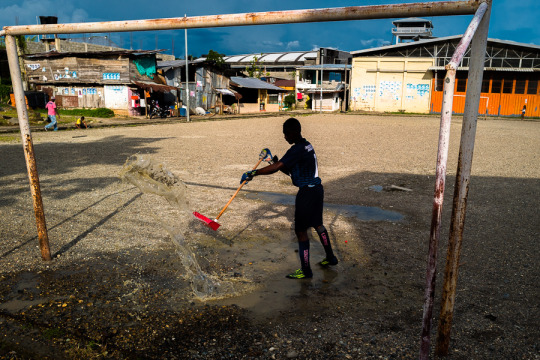

Young Afro-Colombian football players, often dreaming about playing in any professional football league in Europe, prepare for a match on a dirt field in Quibdó, Chocó, the Pacific department of Colombia. - Copyright © 2022 Jan Sochor Photography
#football dreams#football culture#grassroots football#football talents#afro-colombian#choco colombia#colombia
2 notes
·
View notes
Text
Football Culture - Poepclub
Ooit was het een site voor alternatieve voetbalcultuur. Ondertussen is het een geoliede marketingmachine. Hun site heeft geen content meer, wel merchandise. En ze hebben een trouwe aanhang, veel hardcore fans zorgen voor likes en shares op social media. De stickers zie je op veel plekken, de kleding ook.
Daarbij komt er eens in de zoveel tijd een boekje uit, waarvan het idee soms zo simpel is,…

View On WordPress
0 notes
Text
Watched a documentary about the (now legendary) football games between the national teams of russia and Ukraine in 1998 and 1999. The sheer levels of imperialistic fascism the russians were displaying leading up to those games is just typical. And yes, both those games took place before putin came to power, russians have just always been like that.
Patches and pins "russian invasion of Ukraine 1998" were popular among the russian fans leading up to the first game in Kyiv:
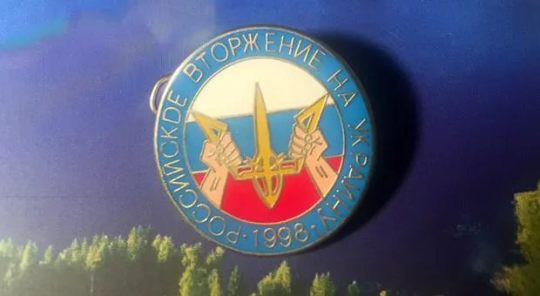
The rhetoric in the russian media about Ukraine not really being a separate country intensified.
For the record, russia lost that game 3:2.
But all of this is nothing compared to the second game, in Moscow in 1999. Russia needed only to win in order to move on in the tournament. Ukraine could settle with a draw. And that is when the true madness unfolded.
Probably the best known episode was this headline in one of the biggest sports newspapers in russia:
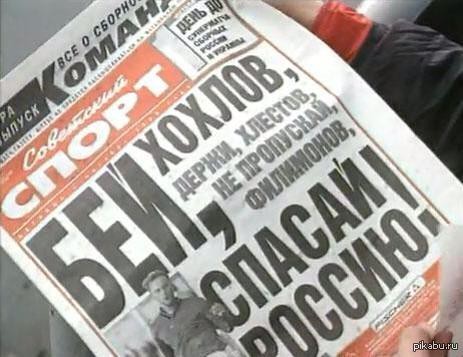
You see, they had a player with the last name "Khokhlov". So, on the surface level, the headline says, "Kick, Khokhlov, save Russia!" However, if you read out the headline, it also says "Kick [slur word for Ukrainians], save russia!". The slogan is a paraphrase of one of the main slogans of the russian Black Hundreds (ultra-reactionary, ultra-nationalist pogromist monarchist movement in the russian empire in early 20th century), only in the original versions there was the slur for Jews there instead. The russians were very proud of that pun. It was everywhere at the time.
Vladimir Putin, who was the russian prime minister at the time, was present at the game. The way the russian commentators already went out of their way to keep singing his praises for no reason is a good indicator how russians tend to make a cult of personality around everyone who happens to be a figure of authority.
And then the game finished with a draw 1:1 after an unbeliavable goal by Andriy Shevchenko (and due to a mistake from russia's goalkeeper):
youtube
Putin got really upset. He stopped showing up at such sporting events for years after this.
The bus with the Ukrainian national team got attacked on its way to the stadium before the game (according to Shevchenko, russians threw bottles at it) and especially after the game (with all sorts of objects being thrown at it, from beer bottles to rocks).
Absolutely typical. And one of the clearest views of ruscism.
569 notes
·
View notes
Text
Joshua Monoi
#joshuajblaize#joshua manoi#muscular guys#big traps#aesthetic guys#aesthetic physique#male physique#ripped dudes#ripped guys#male muscle#gymstagram#big guys#muscular lads#you vs you#powerful men#strong men#strong guys#jock#sportsmen#football jock#football stud#gym culture#gym bros#gym bro#male beauty#yummy guys
81 notes
·
View notes
Text
youtube
Ce genre d'ambiance. Stade au milieu de la ville, stade plein, stade fervent, chantant, beau jeu, beaux maillots, beaux virages... La belle vie.
#Everton#Toffees#Liverpool#Merseyside#Jelavic#Gwladys End#Gwladys street#Lime street#Passion#Football#Football culture#football casual#everton fc#Blues#Manchester city#Citizens#Sky blues#Youtube
6 notes
·
View notes
Video
“americans have no culture”
#germans watching american football#and singing an american song#about west virginia#the only reason people say america has no culture#is because our culture is so ubiquitous that it's taken for granted
1K notes
·
View notes
Text
If you're from Argentina, you've probably heard about the Iberá wetlands, and you know the tourist pitch: a vast expanse of natural wonders in the middle of Corrientes, full of beautiful lapachos, cute carpinchos and yacarés, and now home to the fastest-growing wild yaguareté population, all with the unique Guaraní influenced culture of rural Corrientes.
Now, things aren't as shiny as they look, since the creation and management of the new national park is still a point of contention in many ways, but you will be suprised that this kind of thinking about the Iberá is very, very recent. Most people considered it an obstacle to progress, a big bunch of swamp in the middle of what could be a very productive ranching province. In a geography book from the 1910s (unfortunately I lost the screencap) it says something like "the biggest obstacle for the development of the province is this swamp, and it should be drained"
This took me to the other side of the world, to the Netherlands. They're known for land reclamation, from literally building their country from the sea. Especially when we're facing rising sea levels because of climate change, the Dutch seem like miracle workers, a look into our future. You will find no shortage of praise about how with some windmills and dams, the Dutch took land "from the sea", and turned it into quaint little polders, making a tiny country in Europe a food exporter and don't they look so nice? But when you look about it, you can barely find anything about what came before those polders. You have to dig and dig to find any mentions of not "sea", but of complex tidal marshes and wetlands, things I've learned are ecologically diverse and protected in many places, but you won't find people talking about that at all when talking about the Netherlands. It's all just polders now. What came before was useless swamp, or a sea to be triumphantly conquered. It's like they were erased from history
The use of that language reminded me of the failed vision of draining Iberá... and the triumphing vision in the Netherlands, and many other places. Maybe those wonderful places, those unique wetlands, would have been a footnote, you wouldn't find anything unless you were a bored ecologist who looked, and not even then. Now, far it be from me to accuse the medieval Dutch, who wanted to have more space to farm, of ecocide. And don't think this is going to be a rant against European ecological imperialism either, as the most anthropized places you can find are actually in China and India. But it does get me thinking.
I work with the concept of landscape, and landscape managing. (Not landscaping, those guys get better paid than me) The concept of landscape is somewhat similar to the concept of ecosystem you know from basic biology, but besides biotic and abiotic factors, you also have to involve cultural factors, that is, humans. There is not a single area of "pristine" untouched nature in the world, that is a myth. Humans have managed these landscapes for as long as they have lived in them. The Amazon, what many people think about when they think about "unspoilt" nature, has a high proportion of domesticated plants growing on it, which were and are still used by the people who live on it, and there once were great civilizations thriving on it. Forests and gardens leave their mark, so much that we can use them to find abandoned settlements. From hunter-gatherers tending and preserving the species vital to their survival in the tundra to engineers in Hong-Kong creating new islands for airports, every human culture has managed their natural resources, creating a landscape.
And this means these landscapes we enjoy are not natural creations. They are affected by natural enviroments; biomes do exist, species have a natural distribution. But they are created and managed by humans. Humans who decide what is valuable to them and what is not. The Dutch, seemingly, found the tidal marshes useless, and they created a new landscape, which changed the history of their nation forever. We here in modern Argentina changed our perception of Iberá, decided to take another approach, and now we made it a cherished part of our heritage, which will also speak about us in the future.
Ultimately, what is a useless swamp to be drained or a beautiful expanse of nature to be cherished depends in our culture, in us humans. We are the ones who manage and change ecosystems based in our economics, our culture, our society. This will become increasingly important, as climate change and ecological degradation becomes harsher and undeniable. We will have to decide what nature is worth to us. Think about what is it worth to you.
#I REALLY had to restrain myself not to make a football joke about the netherlands#cosas mias#ecology#biology#culture#cultural landscapes
97 notes
·
View notes
Text
i rly do think there is a line between being critical of saudi, their involvement in football, where all the money is coming from, the millions of human rights violations that the government perpetuates and covers up via sportwashing … and then just straight up dunking on football cultures outside of europe (specifically england/germany/italy) and acting like the fans there are inferior in some way (even if they are smaller in number that does not mean that the football being played is worth any less) and implying consciously or subconsciously that the footballers who grew up in the system there don’t deserve to play football. i’ll be honest, way too many ppl cross the line.
#fine to rb#sorry but it’s actually infuriating to me especially with this henderson business how so many ppl are like#haha lol he passed up moving to a smaller pl club and now he’s playing in front of 5 fans instead of playing in front of full stadiums 🤪#like yeah he should be criticised absolutely for buying into the sportswashing and especially everything regarding lgbt ppl#but some ppl move WEIRDLY like there are other countries outside of europe that have a footballing culture or just are genuinely interested#in footy and to demean the fans and the ppl that are not involved in sportwashing is crazy to me icl#like the inherent xenophobia idgi#maybe i’m deeping it too much but i grew up watching asian football and i was frequently one of like 100 ppl in the stands#it didn’t mean any less to me. and i hate the condescending tone taken on the internet when it comes to this.#rahul.txt
39 notes
·
View notes
Text





i was going to try and make some football pun but i actually have no clue how that shit works is the field goal when you run it over the line or kick it in between the posts. dont kick the baby in between the posts hank.
#venture bros#mspaint prompts#together we can diminish footballs presence in american culture... one tumblrina at a time
47 notes
·
View notes
Text


alert! alert! Nate is the commissioner of the New Jersey Devils fantasy football league.
#Nathan Bastian#Nate Bastian#Jack Hughes#Curtis Lazar#New Jersey Devils#Devils#I don’t do fantasy football or football period#but I’m always fascinated by how the Euro men participate#like is it just they’ve been around it so much they’re like okay yeah this is a part of the culture#or are they building silly teams for the heck of it#like what are Vitek and Akira doing? I would love to know
52 notes
·
View notes